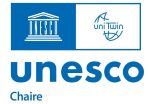Since 2019, the FRQ have been providing financial support for UNESCO Chairs under a joint Declaration of Intent signed with the Canadian Commission for UNESCO (CCUNESCO). Here is a portrait of one of these Chairs, whose work is generating positive impacts for society.

UNESCO Chair on Open Science
Chairholder: Vincent Larivière, Université de Montréal
Scientific research would benefit from being more open and accessible. However, this runs counter to deep-rooted academic traditions.
Historically, access to scientific literature, research data and reviews of scientific papers has been highly restricted. The UNESCO Chair on Open Science and its chairholder Vincent Larivière, a researcher at the Université de Montréal’s Faculty of Library and Information Sciences, are dedicated to making these practices more transparent and accessible.
To this end, the Chair’s research team is studying the open dissemination of scientific results, in particular on certain digital platforms. It is also analysing ways of making the evaluation of articles submitted by academics to science journals more transparent – for example, by providing the content of their peer reviews with published articles. Finally, the team is examining ways of encouraging the sharing of research data.
In recent years, the Chair has been measuring the evolution of open access to scientific articles worldwide and demonstrating the negative effects of more closed approaches. The research team's work indicates that around 50%, or one in two, articles in Québec and Canada is open access, while the rate is between 70% and 80% in countries such as the Netherlands and the UK.
The Chair has also shown that, in Canada, French-language science is more likely to be openly accessible than English-language science, thanks to the Érudit platform, which supports open digital publishing and research in the humanities, social sciences and arts in Québec. The Chair further emphasizes the importance of creating collective knowledge-sharing infrastructures rather than relying on private companies for publication. To generate profits, private publishers charge fees to the people who write or read the articles, thus reducing accessibility.
The results also reveal that open access articles are used in more countries and research institutions. Thus, there are both collective benefits, as more research teams can access articles, and individual benefits, as the article has greater reach and is more widely cited. It’s a win-win situation!
For more information:




